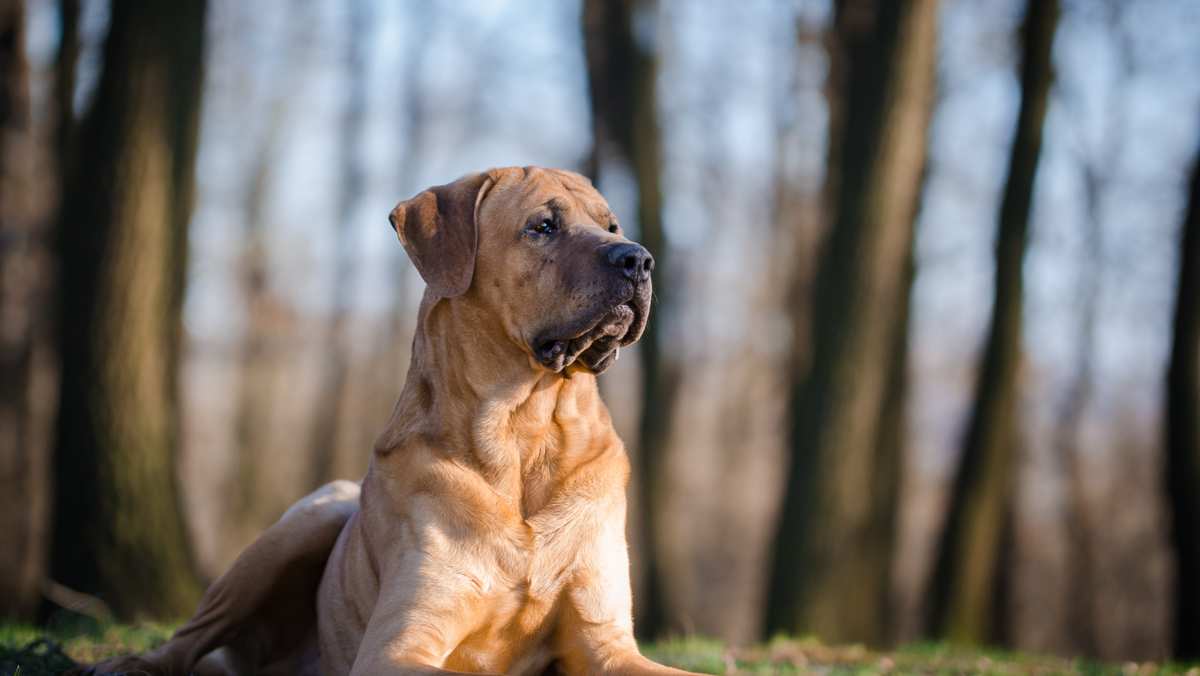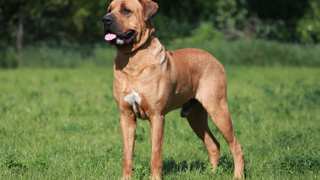Tosa Breed Details
These dogs were bred specially for fighting. While a Tosa Inu fight is a unique spectacle, they are still massive dogs whose potential for destruction is great. They are definitely not for first-time families, but they are fine with experienced handlers who have children in the house. Attacks by lovingly raised and well-handled Tosa Inus are uncommon but Japanese Tosas may still be banned in your city (or even country).
PROS
- Highly intelligent
- Remarkably calm
- Doesn't bark much
- Great with children
- Excellent guard dogs
- Fine with non-canine pets
- Few exercise requirements
- Very loyal to family members
- Extremely protective of property
CONS
- Very rare
- Rather expensive
- Matures very slowly
- Very high pain threshold
- Aggressive around other dogs
- Requires an experienced trainer
- Must be trained very early, as pups
- May be illegal in your country, city, or neighborhood

